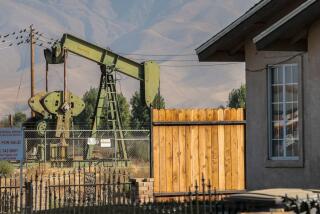ExxonMobil said to halt drilling in $700-million project in Russia

ExxonMobil has halted drilling on its platform in the Kara Sea and begun shutting down its $700-million joint venture with Russia’s Rosneft energy giant to comply with U.S. sanctions that take effect next week, energy industry sources reported Friday.
The drilling operation on the U.S. oil company’s platform off Russia’s far-north Yamal peninsula was meant to begin tapping an estimated 9 billion cubic meters of oil under the sea worth $885 billion at current prices, Bloomberg reported. The business information conglomerate cited three unidentified oil industry sources as saying a day earlier that ExxonMobil had already ceased drilling in preparation for installing at least a temporary seal on the exploratory well.
ExxonMobil has been granted a license by the U.S. Treasury Department to “enable the safe and responsible winding down of operations related to this exploration well,” the Irving, Texas-based company said in a news release posted on its website Friday. It said ExxonMobil was “complying with all U.S. sanctions.”
The license will allow a short extension beyond the Sept. 26 deadline for U.S. companies to meet the new sanctions ordered by Washington and the European Union last week but is “nonrenewable” and all work at the Kara Sea site must stop after that brief extension, ExxonMobil spokesman Dick Keil said.
He declined to say how much longer the company had to prepare the shutdown or speculate on whether Rosneft would be able to resume drilling in the U.S. partner’s absence.
An industry source, speaking on condition of anonymity because he was not authorized to speak publicly, pointed out that the approaching winter weather was going to force a halt to work on the Kara Sea platform in the next few weeks, even without the deadline imposed by the sanctions. The question remains, he said, whether the sanctions would still be in effect next spring, when the exploratory work was set to resume after the winter suspension.
The United States and the European Union last week ordered a halt to all assistance to Russia in exploring and exploiting its Arctic, deep-water and shale-oil deposits as part of an escalating sanctions regime to pressure Russian President Vladimir Putin to cease aggression against Ukraine.
Russia sent thousands of troops into Ukraine’s Crimea peninsula in February, after the ouster of Kremlin-allied Ukrainian President Viktor Yanukovich. Putin annexed independent Ukraine’s strategic peninsula in mid-March to “reunite” its predominantly Russian population with the Russian mainland.
Putin is also accused of instigating and arming pro-Russia rebels who have wrested other areas of southeastern Ukraine from the new Kiev government’s rule in a bitter conflict that has taken more than 3,000 lives.
Greenpeace, citing media reports of ExxonMobil’s suspension of drilling, hailed the move as a boost for the environment and a cautionary tale on doing business with companies operating under Russia’s suspect safety and environmental protections.
“This is great news for the Arctic but a major blow for Exxon’s shareholders,” the environmental group said in a statement. “It’s also a clear example of the risks involved in working with Russian firms to drill for oil in the offshore Arctic. Even before the sanctions it was clear that the Russian Arctic was a risky place to do business, with a lax safety culture and an unreliable regulatory regime.
“The Russian Arctic poses unique technical and environmental challenges at the best of times, but especially in a period of major geopolitical tension,” Greenpeace said, alluding to the heightened animosity between Russia and the West as the Ukraine crisis persists. “It’s time for international oil companies to reconsider these joint ventures and turn away from the Russian Arctic.”
U.S. and European oil companies have collaborated with Russian energy conglomerates over the last two decades in efforts to extract some of the 75 billion barrels of reserves estimated to lie below Russian maritime territory, Energy Voice noted in a posting Friday. The halt to drilling on the University-1 well is the most vivid evidence to date of the impact sanctions are having on the Russian economy, the industry publication said.
More than $100 billion in capital has been taken out of Russia by investors so far this year in fear of further U.S. and European Union restrictions on Western business collaboration. Russia’s economy has slowed measurably since sanctions were first imposed in the spring and the country is now on the verge of recession.
Follow @cjwilliamslat for the latest international news 24/7
More to Read
Sign up for Essential California
The most important California stories and recommendations in your inbox every morning.
You may occasionally receive promotional content from the Los Angeles Times.











